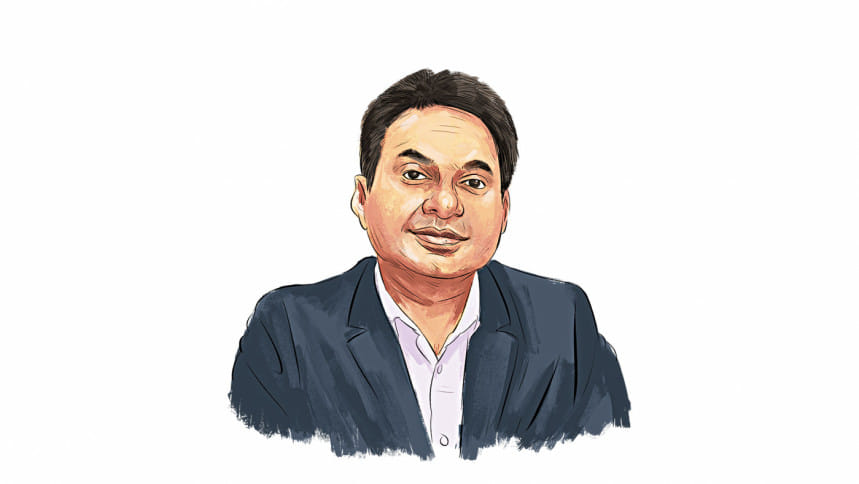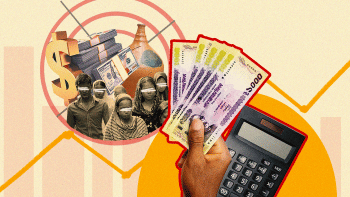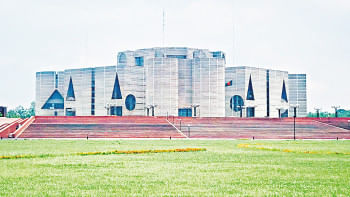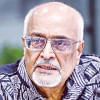Inflation battle must be at the centre of budget

Fighting raging inflation and putting the economy back on track have not been taken seriously as evidenced from the government's delayed response, which set the scene for one of the worst economic crises in its history and an unprecedented prolonged period of higher consumer prices, said an economist.
Selim Raihan, executive director of the South Asian Network on Economic Modeling (Sanem), a think-tank, said the measures that were taken to curb inflation and put the economy back on track have failed because either the steps were not right or they were not taken on time. Therefore, their effectiveness weakened.
He said raising the interest rate to make funds costlier was the only tool or one of the most vital tools available to the central bank. But by the time the Bangladesh Bank started increasing the interest rate, some new complications had already surfaced.
Another wrong policy of the government was borrowing from the central bank since it did nothing but inject new money in the market system, he said.
"And it was done at a time when there was high inflationary pressure. This means the government did not understand the gravity of the situation. This fuelled inflation."

"Inflation should be at the centre point of the budget," he said during an interview with The Daily Star recently.
Selim Raihan, a professor of economics at the University of Dhaka, said there was a solid economic foundation in the decade leading up to the Covid-19 pandemic, which hit the world in early 2020. The economy has moved off track, and the foundation is getting weaker.
Currently, Bangladesh is passing through a difficult time owing to multiple factors such as the lingering impact of the coronavirus pandemic and the Russia-Ukraine war. The ongoing geopolitical tension in the Middle East has added more uncertainty.
"Therefore, it remains to be seen whether the budget can address the difficult issues and take appropriate measures."
The new budget should concentrate on expanding social safety net programmes as much as possible for the next year or so, he said.
Bangladesh has one of the lowest spending for social programmes in terms of GDP compared to many countries. Additionally, there are allegations of wrong targeting and corruption.
Bangladesh also has one of the lowest tax-to-GDP ratios in the world. Still, it has been able to limit the budget deficit to less than 5 percent year after year. It was possible by cutting important spending on health, education, and social protection.
Prof Raihan said: "The very success story of macroeconomic stability came at a very high cost and it didn't really help human capital formation."
He also touched upon the challenges facing the banking sector. "What we are witnessing is the accumulated result of the past failures."
The government has begun phasing out direct subsidies, but Prof Raihan thinks the move should have been initiated when the going was good.
He said the latest hike of the exchange rate will again add fuel to inflation. "But there was no alternative to doing that because the reserves are falling."
Now, the problem is with the current reserve position, he said.
"Even if the country wants to attract more FDI, foreign investors will not feel safe coming to Bangladesh because they will fear that if they come and want to repatriate their profits, banks will not be able to do so owing to the forex crisis."
He said the shift from a fixed interest rate to a flexible interest rate and from a fixed exchange rate regime to a more flexible exchange rate regime proves that there are some realisations among the policymakers, albeit belatedly.
The borrowing would increase as the government will face more pressure since the reserves are not going up.
"If there is indiscriminate borrowing and it is not really based on proper feasibility studies, what will happen is that you shift the burden from the present to the future," he warned.
Thanks to the International Monetary Fund (IMF) conditionalities linked to the reforms in the financial sector and taxation, there is a realisation that these sectors need to be reformed.
But there is a serious vested interest in these sectors. There is a coalition comprising a segment of businessmen, bureaucracy and political elites that do not really want any reforms because they are the beneficiaries of the current system, he said.
He said because of the IMF's pressure, the government is trying to lift tax exemptions. But imposing some taxes on people or sectors will be a cosmetic kind of change and will not really bring a structural shift in revenue collection.
"We need to widen tax coverage. For that, reforms in the NBR's are needed."
Prof Raihan said the decade of macroeconomic stability unfortunately was a lost decade of human capital formation.
"There are many mega projects to build physical infrastructure. But we never heard of mega projects for social infrastructure. No country in the world will be able to show that they achieved a high level of income and development without investing heavily on education."
Prof Raihan said unfortunately, in Bangladesh, any major reform efforts actually stem from external pressure.
He cited the example of the VAT reforms in the early 1990s and the trade policy reform in the 1980s and 1990s that came through the World Bank and IMF programmes.
When the government feels external pressure, it initiates reforms. However, in certain cases, the government does it half-heartedly because it doesn't own the reform programme.
"When you don't own the reform programme, you fill it out just to meet the conditionality. That makes me anxious."
"When you have a decision-making process like this, policymakers sometimes are unable to understand the reality, don't take the right measures at the right time, and when they don't own the programme, then what you see is very hodgepodge kind of stuff."


 For all latest news, follow The Daily Star's Google News channel.
For all latest news, follow The Daily Star's Google News channel. 










Comments